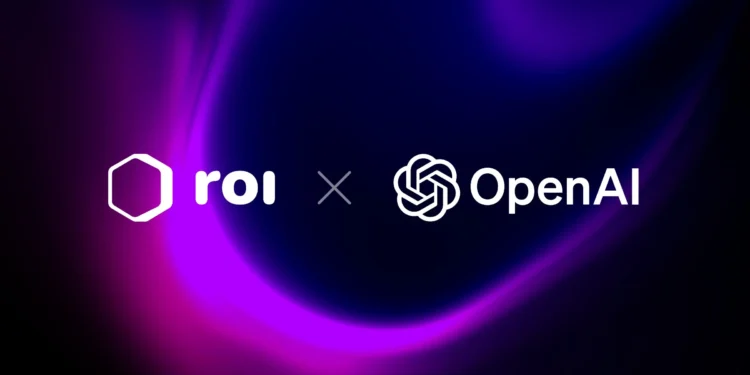OpenAI has just acquired Roi, the AI-powered investment app backed by Kevin Durant. The deal brings Roi CEO Sujith Vishwajith into OpenAI’s ranks while shutting down the three-year-old startup on October 15, 2025. Only Vishwajith joins OpenAI from Roi’s four-person team, making this the company’s fourth talent grab this year.
Roi Brought Kevin Durant’s Money and Gen-Z Financial Wisdom
Roi raised $3.6 million from heavyweight investors including Spark Capital, Kevin Durant’s 35 Ventures, Google’s Gradient Ventures, and former Coinbase CTO Balaji Srinivasan. The New York startup launched in 2022 with a clear mission to make investing accessible for younger investors who own crypto, NFTs, and alternative assets.
Unlike traditional finance apps that ignore modern assets, Roi tracked everything from Bitcoin and Ethereum to collectible sneakers and digital art. Users could connect their Robinhood, Coinbase, TD Ameritrade, and WeBull accounts for unified trading without extra fees.
The app aggregated holdings from multiple decentralized wallets to show real-time portfolio values across traditional stocks, crypto, DeFi protocols, real estate, and NFTs. This comprehensive approach appealed to investors who split their money between Wall Street and Web3.
AI That Talks Like Your Financial Bestie
Roi’s standout feature was its AI companion that adapted to each user’s communication style. Users could tell the app exactly how they wanted advice delivered, creating highly personalized interactions.
One viral example showed a user requesting: “Talk to me like I’m a Gen-Z kid with brain rot. Use as little words as possible and roast me as much as you want I don’t mind.” When the user’s portfolio dropped $32,459, Roi responded: “Suje, you got cooked lil bro. Cause of the tariff announcements, you took an L today…Based on your risk preference this might be an opportunity to buy the dip.”
This conversational approach kept users engaged while delivering serious financial insights. The AI learned from user preferences, job descriptions, and communication styles to create truly personalized experiences.
Why OpenAI Wants Personalized AI to Win Everything
Vishwajith brings proven expertise in user behavior optimization from his Airbnb days, where he generated over $10 million in additional revenue with just 25 lines of code changes. This talent for driving engagement and revenue fits perfectly into OpenAI’s consumer strategy.
OpenAI burns billions on data centers and infrastructure, making profitable consumer applications critical for long-term sustainability. The company recently hit a $500 billion valuation but needs diverse revenue streams beyond API sales to justify that massive price tag.
Personalization represents the next frontier in AI applications. Instead of generic responses, users want AI that understands their preferences, learns from their behavior, and adapts over time. Roi’s team already solved this challenge in finance, providing lessons OpenAI can apply across all consumer products.
OpenAI’s Consumer Products Get Smarter With Financial DNA
The Roi acquisition strengthens OpenAI’s existing consumer offerings. ChatGPT Pulse generates personalized morning news briefings, while the Sora app creates AI-generated content including personal cameos. Instant Checkout lets users shop directly through ChatGPT conversations.
Adding Roi’s financial personalization expertise could enable OpenAI to offer investment advice, portfolio tracking, and trading recommendations directly through ChatGPT. Users might soon ask ChatGPT about their stock performance, get personalized investment strategies, or receive alerts about portfolio changes.
The acquisition also positions OpenAI to compete with traditional financial apps like Mint, Personal Capital, and Robinhood by offering superior AI-driven insights and truly personalized experiences.
The Future of AI Means Software That Knows You Personally
Roi’s vision extends beyond finance into broader software personalization. The team believed future applications won’t deliver static, predetermined experiences. Instead, they’ll become adaptive companions that understand users, learn from interactions, and evolve continuously.
This philosophy aligns perfectly with OpenAI’s bet on personalized AI as the next major product category. Generic AI responses work for simple queries, but complex tasks like financial planning require deep personalization based on individual circumstances, goals, and preferences.
OpenAI’s consumer strategy depends on creating AI that feels genuinely helpful rather than robotic. Roi’s talent brings proven experience in building AI that users actually want to engage with regularly, not just use occasionally for specific tasks.














